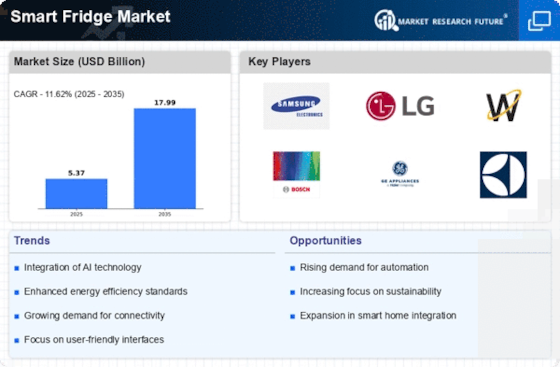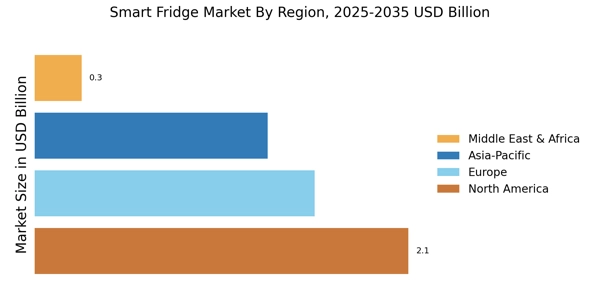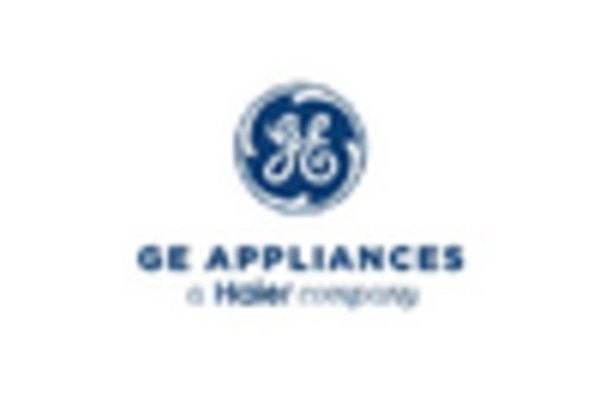Technological Advancements
The smart fridge Market is experiencing a surge in technological advancements, which significantly enhances the functionality and appeal of smart refrigerators. Innovations such as artificial intelligence, machine learning, and IoT connectivity are becoming increasingly prevalent. These technologies enable features like remote monitoring, automated inventory management, and personalized meal suggestions. As consumers become more tech-savvy, the demand for these advanced functionalities is likely to grow. According to recent data, the integration of smart technologies in kitchen appliances is projected to increase by over 30 percent in the next five years, indicating a robust growth trajectory for the Smart Fridge Market.
Rising Health Consciousness
The Smart Fridge Market is witnessing a notable shift towards health consciousness among consumers. As individuals become more aware of nutrition and dietary choices, smart fridges equipped with features that track food freshness and nutritional content are gaining traction. These appliances can suggest recipes based on available ingredients, thereby promoting healthier eating habits. Market data suggests that approximately 60% of consumers express interest in smart appliances that assist in meal planning and health management. This trend indicates a potential for growth in the Smart Fridge Market, as manufacturers increasingly focus on integrating health-oriented features into their products.
Evolving Consumer Preferences
Consumer preferences are evolving rapidly, and this trend is significantly impacting the Smart Fridge Market. Today's consumers seek appliances that not only serve basic functions but also enhance their lifestyle through connectivity and convenience. Features such as voice control, app integration, and customizable settings are becoming essential. Market Research Future indicates that nearly 70% of consumers are willing to pay a premium for smart appliances that offer enhanced functionality. This shift in consumer expectations presents a compelling opportunity for manufacturers to innovate and differentiate their products within the Smart Fridge Market, potentially leading to increased sales and market penetration.
Urbanization and Changing Lifestyles
Urbanization is a significant factor influencing the Smart Fridge Market. As more individuals move to urban areas, the demand for compact, multifunctional appliances is on the rise. Smart fridges that offer space-saving designs and integrated technology appeal to urban dwellers who often have limited kitchen space. Additionally, the fast-paced lifestyle of city living necessitates convenience, making smart fridges with features like remote access and automated grocery ordering increasingly attractive. Market analysis indicates that urban populations are expected to grow by 1.5 billion by 2030, suggesting a substantial opportunity for the Smart Fridge Market to cater to this demographic.
Sustainability and Environmental Concerns
Sustainability is becoming a pivotal driver in the Smart Fridge Market. Consumers are increasingly prioritizing eco-friendly products, leading manufacturers to innovate in energy-efficient designs and sustainable materials. Smart fridges that minimize energy consumption and utilize recyclable components are likely to attract environmentally conscious buyers. Recent statistics indicate that energy-efficient appliances can reduce energy usage by up to 50% compared to traditional models. This growing emphasis on sustainability not only aligns with consumer values but also positions the Smart Fridge Market favorably in a competitive landscape, as brands that adopt green practices may enhance their market share.

















